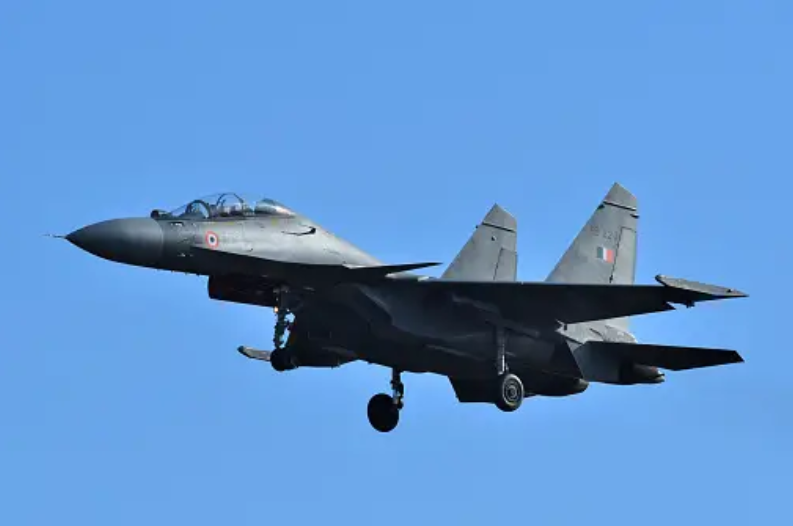Russia’s “Checkmate”
Russia intends to “checkmate” India’s hesitation to join the development of its single-engine light tactical fighter jet Su-75, nicknamed ‘Checkmate’, by optimizing costs. The development of the aircraft, touted to compete with American Lockheed Martin F-35 Lightning II and Shengyang FC-31 Gyrfalcon, has been reeling under delays.
India’s Stance
IAF Air Chief Marshal RKS Bhadauria, categorically stated in 2019 that “There are no plans for a foreign FGFA (Fifth Generation Fighter Aircraft) now or in the foreseeable future. The FGFA for the IAF will be the indigenous AMCA for which work has already started,” heralding the age of indigenous in the forces.
The Su-75 fighter jet is a derivative of the Su-57, and India was a key partner in its development alongside Russia. Unfortunately, a dispute over the transfer of technology and design specifications led to India’s unexpected withdrawal from the project, leaving Moscow in a state of surprise.
Recent Developments of Su-75
In June 2023, Rostec( manufacturer of the Sukhois) , Russian state-owned defense conglomerate, brought a new variant of the aircraft with a different tail section of the fuselage. It has enlarged flaperons and the wing leading-edge root extensions were slightly longer. Modifications to the wing panels, which were taken from the Su-57, were also made.
The original patent application submitted to the Russian Federal Service for Intellectual Property featured a different configuration for the three versions of the aircraft, including a single-seater fighter, a two-seat combat trainer, and an unmanned aircraft.
Sukhoi has been claiming that the Su-75 is the first aircraft to be fully designed on supercomputers. Compared to traditional experiment-based development, supercomputer simulation paves the way for rational design in relatively less time and price.
At the 2021 MAKS air show, a static non-flying prototype of the Sukhoi Su-75 Checkmate was presented, designed for cheap cost and export. The aircraft may face competition from Lockheed Martin’s F-35 Lightning II and Shenyang FC-31. Over the next 15 years, 300 planes are projected to be built, with each costing between $25 and $30 million.
The Komsomolsk-on-Amur Aircraft Plant, where the Sukhoi Su-57 is constructed, commenced production. International sanctions imposed on Russia as a result of the Russo-Ukrainian War, as well as the difficulty to import semiconductors and high-tech machining equipment from the European Union, may slow progress.
United Aircraft Corporation intends to develop four Su-75 Checkmate prototypes, with flight tests starting as early as 2024. The aircraft has internal armament bays, a v-tail, and a diverter less supersonic inlet.
The Situation On Ground
The IAF, which presently has 31 squadron strengths against the sanctioned strength of 42, has been awaiting the government’s nod for a long time for the Multi-Role Fighter Aircraft (MRFA).
The IAF need a large number of aircraft to be acknowledged as a deterrent to the PLAAF (People Liberation Army Air Force). However, the IAF has been unable to persuade the Indian government that the imported aircraft are necessary in such huge numbers. Following then, the entire procedure, including aircraft delivery, will take 6 to 7 years. Tejas Mk-2 may be ready for induction by that time. Because of this emphasis on ‘Make in India’, India is unlikely to participate in the creation of ‘Checkmate.’
“Also, the dilemma related to force structure is also there. The recent wars and the success of drones call for planning about the investment in the new generation aircraft or the modern drones,” Air Marshal Khosla concludes.
In the latest deal, India will be buying 31 MQ-9B Reapers at the cost of US $3.99 billion, which many experts point out would have been enough to buy 32 more Rafale fighter jets. However, only time will tell if it has been a pointless deal or marks the entry of futuristic platforms into India’s inventory.



